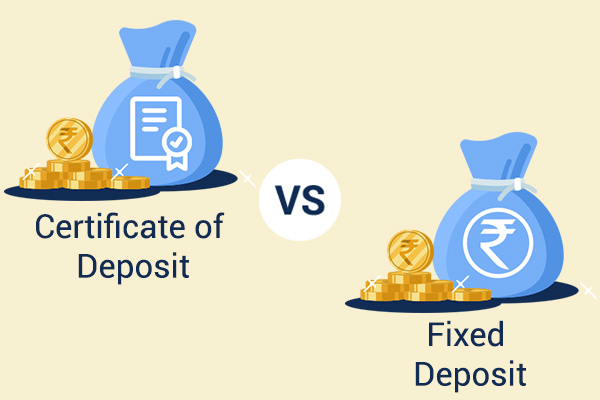In the world of financial instruments, two stalwarts often stand side by side, offering a haven for conservative investors seeking stable returns: Certificate of Deposit (CD) and Fixed Deposit (FD). While they might seem similar at first glance, a closer inspection reveals nuanced disparities that can significantly impact your investment strategy.
Defining the Terms:
Certificate of Deposit (CD):

A Certificate of Deposit is a time deposit offered by banks or financial institutions with a fixed term and interest rate. Investors agree to lock in their funds for a specified period, and in return, they receive interest upon maturity.
Fixed Deposit (FD):

A Fixed Deposit, on the other hand, is a similar financial instrument where an investor deposits a lump sum amount with a bank or financial institution for a predetermined period at a fixed interest rate.
Key Differences:
-
Flexibility of Withdrawal:
- CD: Typically, withdrawing funds from a CD before maturity incurs penalties. Early withdrawal can result in forfeiting a portion of the interest earned.
- FD: While FDs also penalize premature withdrawals, some banks offer more flexibility, allowing partial withdrawals or closure with reduced interest rates.
-
Interest Rates:
- CD: Interest rates on CDs are generally higher than regular savings accounts but may vary based on the term. Longer-term CDs often yield higher interest rates.
- FD: FD interest rates are influenced by market conditions and may fluctuate over time. Different tenures and banks may offer varying rates.
-
Terms and Tenure:
- CD: CD terms are more standardized, typically ranging from a few months to a few years. Investors can choose the term that aligns with their financial goals.
- FD: FDs offer a broader range of tenures, allowing investors to select terms that suit their preferences, ranging from a few days to several years.
-
Renewal Options:
- CD: At maturity, investors can choose to renew the CD for another term or withdraw the principal and interest.
- FD: Similar to CDs, FDs offer renewal options, allowing investors to reinvest the principal and interest for an additional period.
-
Issuing Institutions:
- CD: CDs are primarily issued by banks and credit unions, providing a secure investment option backed by the institution’s credibility.
- FD: Fixed Deposits are offered by banks, non-banking financial companies (NBFCs), and other financial institutions, expanding the range of choices for investors.
FAQs on Certificate of Deposit
- Are CDs insured by the government?
- Can I withdraw my CD before maturity?
- What is the minimum deposit for a CD?
- How often is the interest compounded in a CD?
- Are there penalties for early withdrawal from a CD?
- Can I reinvest my CD upon maturity?
Conclusion:
In the intricate tapestry of financial instruments, the choice between a Certificate of Deposit and a Fixed Deposit hinges on individual preferences, risk tolerance, and financial goals. Both instruments offer a secure avenue for parking funds, with variances that cater to the diverse needs of investors. Understanding these differences empowers investors to make informed decisions, navigating the financial landscape with confidence.
Read More:-How to start dropshipping in USA in 2024
Read More:- Unveiling the 20 Invaluable Benefits for Startup Businesses
